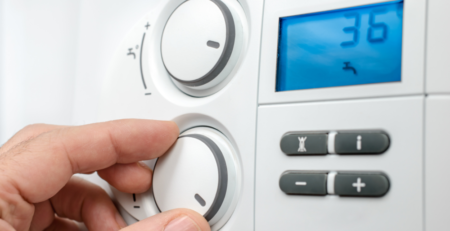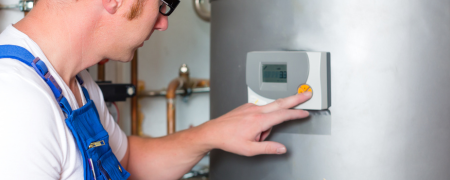Breaking Traditions: Electric Water Heaters vs. Conventional Heating Systems
Electric Water Heaters vs. Conventional Heating Systems Traditionally, homes relied on conventional heating systems, such as gas or oil-powered heaters, for hot water needs. However, with the advent of technology, electric water heaters have emerged as alternatives that challenge and, in many ways, surpass the conventions of traditional heating systems. In this comparison guide, we explore the differences between electric water heaters and conventional heating systems, breaking down the traditions and helping you make an informed decision for your home.
**1. *Energy Source*
Electric Water Heaters:
Electric water heaters rely on electricity as their primary energy source. They are connected to the electrical grid, providing a convenient and widely accessible power supply. This makes them suitable for homes with reliable electricity and those seeking an efficient and clean energy option.
Conventional Heating Systems:
Traditional heating systems come in various forms, including gas, oil, or propane-powered models. They depend on the availability of the respective fuel source. While gas is a common choice, it requires access to a natural gas supply, limiting its use in certain regions. Oil and propane heating systems have similar limitations, relying on fuel deliveries.
2. Efficiency and Operating Costs
Electric Water Heaters:
Electric water heaters are known for their efficiency, especially in smaller households or regions where electricity is relatively inexpensive. Modern electric water heaters often feature advanced insulation and heating technologies, minimizing standby heat loss and optimizing energy use. However, electricity rates can vary, impacting operating costs.
Conventional Heating Systems:
The efficiency of conventional heating systems can vary based on the type of fuel used. Gas heaters, for example, are generally efficient, but their effectiveness may decrease with aging equipment. Oil and propane systems may have higher operating costs due to the fluctuating prices of these fuels. Regular maintenance is crucial to ensure optimal efficiency.
3. Installation and Space Requirements
Electric Water Heaters:
Electric water heaters, especially tankless models, are known for their compact and space-efficient designs. They can be installed in various locations, including closets, utility rooms, or even mounted on walls. The installation process is typically simpler than that of conventional heating systems, requiring electrical connections and water pipes.
Conventional Heating Systems:
Traditional heating systems often involve more extensive installations, particularly for systems with storage tanks. Gas heaters require proper venting, and oil or propane systems need dedicated storage tanks. The installation process may also involve more complex connections, making it essential to hire professionals for proper setup.
4. Environmental Impact
Electric Water Heaters:
Electric water heaters are considered more environmentally friendly compared to some conventional heating systems. If the electricity in your region comes from renewable sources, such as wind or solar, the environmental impact can be further reduced. Electric water heaters produce no on-site emissions, contributing to cleaner air within the home.
Conventional Heating Systems:
The environmental impact of conventional heating systems depends on the type of fuel they use. Gas systems produce carbon emissions, contributing to air pollution and climate change. Oil and propane systems also emit pollutants during combustion. Choosing cleaner-burning fuels or exploring renewable energy options can mitigate the environmental impact.
5. Maintenance and Longevity
Electric Water Heaters:
Electric water heaters are known for their durability and lower maintenance requirements. Tankless models, in particular, have fewer components that can wear out over time. Regular flushing to remove sediment and checking heating elements are typically the main maintenance tasks. With proper care, electric water heaters can have a long lifespan.
Conventional Heating Systems:
Traditional heating systems may require more frequent maintenance, especially for gas or oil systems with storage tanks. Regular inspections, cleaning, and addressing any issues promptly are essential for ensuring their longevity. The lifespan of conventional heating systems can vary but is generally influenced by proper maintenance.
Conclusion
Breaking traditions in favor of electric water heaters or sticking with conventional heating systems involves weighing factors such as energy source, efficiency, installation, environmental impact, and maintenance. Consider your specific needs, local energy availability, and environmental priorities when making a decision. Both options have their merits, and the best choice depends on your individual circumstances and preferences.
Get Access Now
For further insights and guidance on choosing between electric water heaters and conventional heating systems, visit Explore a curated selection of water heaters and heating systems to find the solution that aligns with your home’s requirements.





Leave a Reply